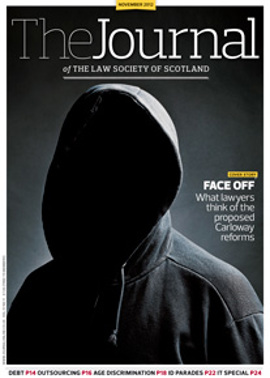Criminal injuries in the UK - how to make a claim
Claiming compensation for injuries suffered in an act of criminal violence is different to other types of injury claim. In cases of road traffic accidents, accidents at work and medical negligence there is an insurance policy covering the liability of the person or people at fault. However, this is not the case when an individual or group causes unprovoked harm to somebody else.
Of course, suffering serious criminal injuries can still have a detrimental effect on a victim’s quality of life. They may not be able to go to work or do the same things they used to due to reduced mobility; surely then a victim of such an act should also be entitled to compensation?
Fortunately, there is a way for those who fall foul of a criminal act to get the compensation they deserve. The Criminal Injuries Compensation Authority (CICA), set up in 1996, is a Government body that allows people to make claims for criminal injuries. Based in Glasgow, they allow anyone to claim compensation in the UK (England, Wales and Scotland) who meets certain criteria.
These rules, called the "Criminal Injuries Compensation Scheme", were introduced in November 2008 and include the following important points:
Injuries must be "serious" enough
The CICA structure their compensation payments in bands, ranging from £1,000 at the lowest, all the way up to £500,000 for the most serious. After making an application, they will evaluate the case to see which band these injuries falls within. Of course, this means that they must be deemed serious enough to at least qualify for the lowest payment, meaning that any "non-serious" crimes may not result in a payout at all.
Victim must be "innocent"
The person who has suffered the injuries must be a completely innocent victim of criminal violence. This means they mustn’t have been involved in any altercation with the accused or incited the act in any way. If the victim’s behaviour potentially led to the incident occurring, the CICA can refuse to make a payment.
Must be reported to the police
Victims of violent crimes must report the act to the police within a reasonable time-frame. Failure to do so can prevent them from qualifying for an injury compensation payout. They must also fully co-operative with the police’s investigation into the crime after reporting it.
No criminal record
Although having a criminal record will not prevent a victim of a violent crime from claiming compensation, their chances of doing so are reduced somewhat if they do. In many cases, the CICA will award a lower sum of money than someone without a criminal record would have received. The more serious the criminal record, the more likely that they will lower this payment, or even refuse it altogether in some cases.
Application made within two years
The application to the CICA should be made within two years of the incident in order to be considered. This is one aspect where there are similarities to other personal injury compensation cases, where the same time limits are in place. However, a claim can be made outside of the two year period but only when it was not reasonable to do so, for example the extent of the injuries prevented the victims from doing so.
Help making a criminal injury compensation claim
If you have suffered an injury in an act of criminal violence then it is always advisable to contact a professional legal expert for advice. Personal injury claims company IL4U can help you through this process – from discussing your incident through with you, guiding you on how much you are likely to receive and assisting you to complete the official application forms to be submitted to the CICA.
References:
In this issue
- The discount rate debate
- Weighted scales
- "Mere squatters"?
- Extended, modernised and improved?
- Reading for pleasure
- Opinion column: Andrew Todd
- Book reviews
- Council profile
- President's column
- Crofting Register is all set to go live
- Ends of justice?
- A debt lifeline?
- Criminal injuries in the UK - how to make a claim
- LPOs: the next level of help
- The age of equality
- Human rights: a call to action
- Screen test
- Further, faster, smarter
- Drop dead date
- Shares for rights
- Vive la difference?
- Automatic? For employers, not quite
- Scottish Solicitors' Discipline Tribunal
- All change at ILG
- Factoring in good practice
- Worker or partner... what's the difference?
- Ask Ash
- Service game
- Medical law: committee appeal
- Law reform roundup
- Reality checks
- Business radar
- From the Brussels office






